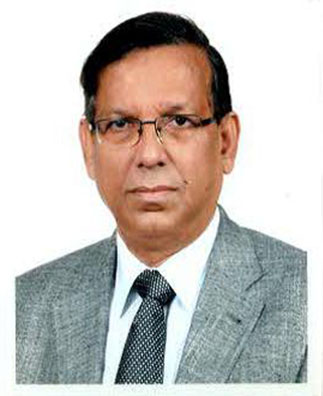Jurisdiction of Court
Every court of Bangladesh possesses jurisdiction over matters only to the extent granted to it by the Constitution of Bangladesh or legislation of this country. The Superior Court of Justice in Bangladesh is named as Supreme Court of Bangladesh followed by a hierarchy of civil and criminal court at the district level. Jurisdiction of all courts of Bangladesh is discussed below-
Supreme Court of Bangladesh
In exercise of powers conferred under Article 94 of the constitution the Apex Court of the country was established which consists of:
- the Appellate Division, and
- the High Court Division.
Jurisdiction of the Appellate Division -
According to article 103 of the Constitution of Bangladesh jurisdiction of Appellate division are as follows-
- The Appellate Division have jurisdiction to hear and determine appeals from judgments, decrees, orders or sentences of the High Court Division.
- An appeal to the Appellate Division from a judgment, decree, order or sentence of the High Court Division shall lie as of right where the High Court Division-
- certifies that the case involves a substantial question of law as to the interpretation of the Constitution; or
- has confirmed a sentence of death or sentenced a person to death or to imprisonment for life, or
- has imposed punishment on a person for contempt of that division; and in such other cases as may be provided for by Act of Parliament.
- An Appeal from the judgments, decrees, orders or sentences of the High Court Division in a case to which clause (2) does not apply shall lie only if the Appellate Division grants leave to appeal.
- Parliament may by law declare that the provisions of this article shall apply in relation to any other court or tribunal as they apply in relation to the High Court Division.
The Jurisdiction of the High Court Division
The High Court Division has original, appellate and other jurisdictions, powers and functions as are conferred by the Constitution and other laws-
- Original jurisdictions – in writ, company, Admiralty matters etc.
- The appellate and revisional powers are from the judgments and orders of the District Judges, Joint District Judges, Sessions Judges , Special Tribunals, Special Judges, Artha Rin Adalats, Druta Bichar Tribunals, and Bankruptcy Courts etc.
- Contempt matters.
Subordinate Court:
Civil Court:
- The Court of District Judge.
- The Court of Additional District Judge.
- The Court ofJoint District Judge.
- The Court of Senior Assistant Judge.
- The Court of Assistant Judge.
Jurisdiction of Civil Court-
1. District Judge Court- Revisional jurisdiction , appeal of civil matters valuation of which is upto five crore taka, Probate matters etc.
2. Additional District Judge Court- Try cases transferred to this Court by District Judge.
3.Joint District Judge Court- i) Original Jurisdiction- hearing of civil suit of which valuation is from twenty five lac taka to unlimited,
ii)Try succession matter,
ii) Revision- which case is transferred to this Court by District Judge,
iii)Appeal –which case is transferred to this Court by District judge.
4. Senior Assistant Judge Court- try suits of civil nature of which valuation is fifteen lac to twenty five lac taka.
5. Assistant Judge Court- to try civil suits of which pecuniary jurisdiction is below fifteen lac taka.
6. Small Causes Court– A Small Causes Court shall have jurisdiction to dispose of suits of a civil nature of which the value does not exceed twenty five thousand taka.
7. Family Courts –This court try suits which are of family matters i.e.- dissolution of marriage, dower, custody and guardianship of children, restitution of conjugal rights and maintenance relating to matters.
Criminal Court:
(i) Court of Sessions: There shall be in every division the following Sessions Court-
(a) Sessions Judge
(b) Additional Sessions Judge
(c) Assistant Sessions Judge
For metropolitan area- In every metropolitan area there shall be the following Sessions Court-
(a) Metropolitan Sessions Judge
(b)Additional Metropolitan Sessions Judge
( c) Joint Metropolitan Sessions Judge
(ii) Magistrate Court:
For Metropolitan Area- Hierarchy of Magistrate Court for Metropolitan area are discussed below-
- Chief Metropolitan Magistrate
- Additional Metropolitan Magistrate
- Metropolitan Magistrate
All over the country other than Metropolitan Areas-
(a) Chief Judicial Magistrate,
(b) Additional Chief Judicial Magistrate,
(c) Magistrate of the first Class,
(d) Magistrate of the Second Class,
(e) Magistrate of the Third Class.
Jurisdiction of Criminal Court:
- Court of Sessions Judge and Additional Sessions Judge-This court may pass any sentence authorized by law but any sentence of death passed by any such Judge shall be subject to confirmation by the High Court Division.
- Joint Sessions Judge- A Joint Sessions Judge may pass any sentence authorized by law, except a sentence of death or of transportation for a term exceeding ten years or of imprisonment for a term exceeding ten years.
- Magistrate of first class/ Metropolitan Magistrate – maypass order for imprisonment for a term not exceedingfive years and fine not exceedingten thousand taka,
- Magistrates of the Second Class- may pass order for imprisonment for a term not exceeding three years and fine not exceeding five thousand taka,
- Magistrates of the Third Class- may pass order for imprisonment for a term not exceeding two year and fine not exceeding two thousand taka.
Tribunals and Special Court-
- Nari-O-Shishu Nirjatan Daman Tribunal: The offences under the Nari-O-Shishu Nirjatan Daman Ain-2000 are being tried by this tribunal.
- Druto Bichar Tribunal-The offences under the Druto Bichar Tribunal Ain, 2002 are tried by Druto Bichar Tribunal (Speedy Tribunal).
- Druto Bichar Adalat: The offences under the Ain Shrinkhola Bighnokari Aporadh (Druto Bichar) Ain, 2002 are tried by Druto Bichar Adalat.
- Special tribunal- The offences under the Special Powers Act, 1974 are tried by the Special Tribunal.
- Administrative Tribunal – This tribunal has exclusive jurisdiction to hear and determine applications made by any aggrieved person in the service of Government in respect of terms and conditions of his service.
- Administrative Appellate Tribunal – An appeal from the decision of the Administrative Tribunal lies in Administrative Appellate Tribunal consisting of a chairman and two members.
- Labour Court-This court has been established to adjudicate disputes regarding employment of commercial or industrial disputes.
- Labour Appellate Tribunal– Any person aggrieved by an award of the Labour Court may prefer an appeal to this tribunal.
- Taxes Appellate Tribunal- If an assesse is aggrieved by an order of the Appellate Joint Commissioner or Commissioner (Appeal), he may prefer an appeal to the Taxes Appellate Tribunal.
- Customs, Excise and Value Added Tax Appellate Tribunal-Any person aggrieved by an order or decision of the commissioner or commissioner (Appeal) may prefer an appeal to the Customs, Excise and VAT Appellate Tribunal.
- Artho Rin Adalat– A suit for recovery of loan of financial institutions including banks is to be tried by the Court of Artho Rin Adalat.
- Special Judge Court -The offences under the Anti Corruption Act, 1957 and the Criminal Laws Amendment Act, 1958 are tried by Special Judges.
- Land Survey Tribunal- This Court has been established under section 145A of State Acquisition and Tenancy Act,1950 to solve dispute relating to survey of land.
- Marine Court- This court tries all cases relating to the marine accident case, defect of vessel and cases under Merchandise Shipping Ordinance and Inland Shipping Ordinance.
- Court of Settlement- This court has been established under the Abandoned Buildings (Supplementary Provisions) Ordinance, 1985. This Court deals with the abandoned buildings and has all the powers of a civil court. No appeal can be preferred against the order of this court.
- Cyber Tribunal- This court tries all cases which are relating to cyber crime.
- Court of Environment- This court try all cases which arises from environment related issues.
- Court of Environment of Appeal- Any person aggrieved by an award of the Court of Environment may prefer an appeal to this court.
- Special Tribunal, Securities & Exchange Commission- This tribunal deals with the cases which are related to securities and exchange.
- Forest Court- This court tries all cases under forest act, 1927 which is related to the offences committed inside forest.
The International Crimes Tribunal-
This Tribunal was constituted for the purpose of trial of offences such as-
(a) Crime against Humanity,
(b) Crime against peace,
(c) Genocide,
(d) war crime,
(e) Violation of any humanitarian rules applicable in armed conflicts laid down in the Geneva conventions, 1949,
(f) Any other crime under the International Law.






